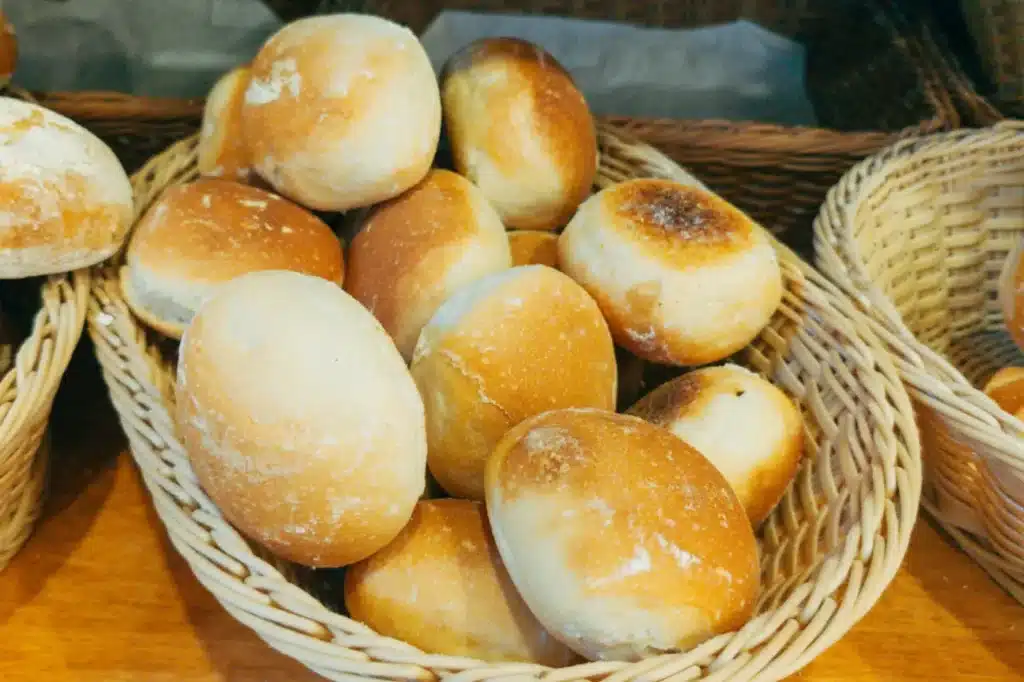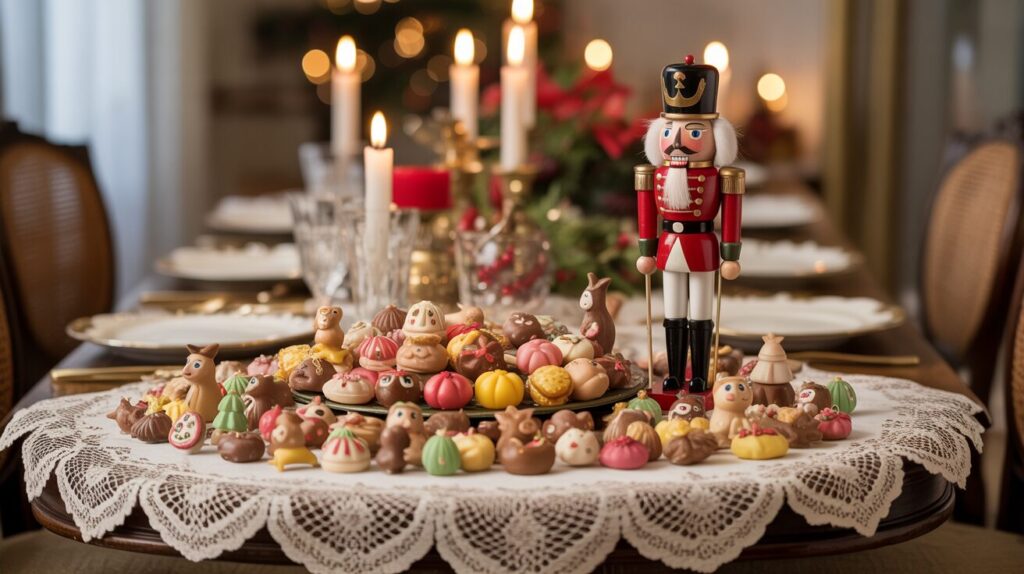A Delicious Slice of Daily Life
I can still remember the smell of freshly baked bread as we’d stroll into the bakeries in Germany. I was just 12 years old then, but I still remember how wonderful they were. I had never seen so many different kinds of breads, pastries and cakes. We’d see many of the locals chatting to each other, everyone seemed to know each other. Sometimes there would be small areas where you could sit down and enjoy a good cup of coffee with your morning pastry. It was a cultural experience that still brings back fond memories today.
German bakeries are like cornerstones of a community, a daily ritual. But what makes German bread culture so special? That’s what we’re talking about today.
The Heartbeat of German Bakeries Lives On
Everything seems to be massed produced today, but this is where German bakeries stand strong. They are often family-owned and operated for generations, and guard their time-honored recipes and techniques.
While most food gets mass-produced today, German bakeries remain strong. These family-run shops, passed down through generations, carefully guard their traditional recipes and baking methods. For Germans, baked goods represent far more than simple nourishment—they form the backbone of daily life and cherished family customs. From leisurely Sunday morning meals to the beloved afternoon Kaffezeit ritual, fresh bread and pastries serve as gathering points that strengthen community bonds and mark special occasions. This unwavering commitment to craftsmanship has traveled through the generations, creating an incredible array of breads and cakes that now hold official recognition as treasured elements of Germany’s cultural identity.
Unlike some countries where independent bakeries are dwindling, Germany has a thriving network. You’ll find them in busy cities, tucked away in little villages, and even on the corners of suburban neighborhoods. This says a lot about their importance in German bakery culture and daily life.
“Brötchen”: The Star of the German Breakfast Table
No exploration of German bakery culture is complete without bringing up the beloved “Brötchen.” These small, crusty rolls are the stars of the German breakfast table. In Germany, sugary cereals are not a big thing like they are here in the USA. In Germany, breakfast is usually a nice selection of Brötchen, fresh from the German bakery, served with butter, jam, cheese, and cold cuts.
Whether you prefer a classic “Rundstück” (round roll), a seeded “Kaisersemmel,” or a crispy “Schrippe,” there’s a Brötchen for every taste. The act of selecting your Brötchen from the German bakery each morning is a ritual, a small but important part of the daily routine.



More Than Just Bread: A Sweet Symphony of Treats
While those beloved morning Brötchen might steal the show at breakfast, walk into any German bakery and you’ll find a treasure trove waiting for you all day long. The shelves are loaded with crusty rye loaves and tangy sourdough breads, while display cases showcase irresistible delicate cakes and flaky pastries. Whether you’re craving something substantial to fuel your afternoon or searching for the perfect sweet treat to brighten your day, these bakeries have mastered the art of satisfying every craving that walks through their doors.
Think of the “Apfelstrudel,” a warm apple pastry with cinnamon and raisins, or my favorite, the “Schwarzwälder Kirschtorte” (Black Forest Cake), a decadent chocolate cake soaked in cherry liqueur. And let’s not forget the seasonal specialties, like “Stollen” at Christmas or “Berliner” (jelly-filled donuts) during Carnival. These treats are more than just desserts; they are expressions of German bakery culture and festive traditions.
With over 3,000 types of bread in Germany officially recognized, there’s truly something to satisfy every taste and craving. From hearty whole grain loaves to delicate sweet breads, the different types of bread available represent centuries of regional traditions and family recipes.
The German Bakery: A Community Hub
Step into any German bakery and you’ll quickly see it’s so much more than just a place to buy bread. These cozy spots pulse with the heartbeat of the neighborhood – where Mrs. Schmidt stops by every Tuesday to chat about her grandchildren while picking up her usual pretzel, where old friends bump into each other over the pastry counter and end up lingering for twenty minutes, and where parents treat their kids to a special cookie after school. You’ll hear the baker saying “Guten Morgen!” to regulars by name, catch snippets of local gossip floating over the warm scent of rising dough, and witness that magical moment when strangers bond over debating which strudel looks most tempting. It’s this beautiful mix of familiar faces, gentle teasing, and shared rituals that transforms a simple bakery into the living room of the community.
When you really think about it, the German bakery is like a living, breathing snapshot of what Germans hold most dear. Walk in to grab your daily bread, and you’re suddenly part of something much bigger – you’re following in the footsteps of your grandparents who bought from the same family of bakers, you’re supporting a neighbor who still gets up at 4 AM to knead dough by hand, and you’re helping to make sure that your own children will someday experience that same wonderful ritual of choosing between a dozen different types of fresh rolls. It’s funny how something as simple as picking up a loaf of bread can make you feel so connected – to the weathered hands that shaped it, to the generations who perfected the recipe, and to all the breakfast tables it will grace tomorrow morning.
Experiencing German Bakery Culture
So if you ever find yourself wandering through a German town, do yourself a favor and walk into the nearest local German bakery. Don’t just rush in and out – take a moment to really soak it all in. Let that incredible smell of fresh bread wrap around you like a warm hug, watch the bakers moving efficiently behind the counter, and listen to the cheerful chatter of locals placing their orders. Point to a few different Brötchen that catch your eye, maybe be brave and try that unfamiliar pastry that looks absolutely divine, and don’t be shy about complimenting the baker on their skills – they’ll likely smile back at you and even slip you an extra treat.
You’ll walk away with more than just a bag of baked goods; you’ll have experienced a little slice of what makes German life so wonderfully rich. It’s one of those authentic moments that no guidebook can really prepare you for, but that will stick with you long after the last crumb is gone.



FAQ
What makes German bakery culture so special compared to other countries?
German bakeries are a part of daily life and community traditions. Unlike many places where bakeries are just shops, German bakeries serve as neighborhood gathering spots where people chat, catch up, and maintain social connections. They’re often family-owned for generations, preserving traditional recipes and techniques that create an incredible variety of authentic breads and pastries you won’t find anywhere else.
What are Brötchen and why are they so important in Germany?
Brötchen are small, crusty rolls that are an icon of the German breakfast routine. Unlike sugary cereals common in other countries, Germans start their day with fresh Brötchen from the local bakery, served with butter, jam, cheese, and cold cuts. The daily ritual of selecting your Brötchen each morning is a cherished part of German routine, and there are many varieties like Kaisersemmel, Schrippe, and Rundstück to choose from.
What other treats can I find at a German bakery besides bread?
German bakeries offer an amazing selection of sweet and savory items throughout the day. You’ll find hearty rye breads, tangy sourdough loaves, delicate cakes like Black Forest Cake (Schwarzwälder Kirschtorte), warm Apfelstrudel, and seasonal specialties like Christmas Stollen or Carnival Berliner (jelly donuts). Each bakery usually has its own specialties passed down through generations.
How do German bakeries serve as community hubs?
German bakeries are like the living rooms of their neighborhoods. Regular customers are greeted by name, neighbors bump into each other and hang around to chat, families treat kids to special cookies, and locals share gossip over the scent of fresh bread. These daily interactions create strong community bonds and make the bakery a vital social center where relationships are built and maintained.
What should I do if I visit a German bakery as a tourist?
Take your time to soak up the experience! Don’t rush in and out – enjoy the aroma, watch the bakers work, and listen to the local chatter. Point to different Brötchen that catch your eye, be adventurous with unfamiliar pastries, and don’t hesitate to compliment the baker’s work. They’ll likely appreciate your interest and might even give you an extra treat. It’s an authentic cultural experience that guidebooks can’t fully capture.
*You may also like: Exploring the Heartwarming German Traditions




